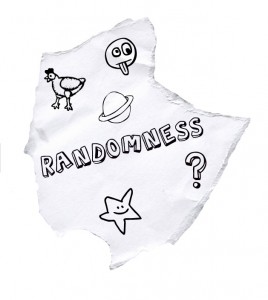Haiti, vodou & all that: Why irrationality may have a rational logic all its own
 The exasperation of Haiti’s first cardinal at the irrational hope aroused in Haitian breasts by vodou is pretty understandable. (Click here to read my story in The Guardian.) Like most rational people, Cardinal Langlois, deplores his country’s tendency to put up with political incompetence and judicial incoherence and seek the easy but ineffectual “magic” of vodou instead.
The exasperation of Haiti’s first cardinal at the irrational hope aroused in Haitian breasts by vodou is pretty understandable. (Click here to read my story in The Guardian.) Like most rational people, Cardinal Langlois, deplores his country’s tendency to put up with political incompetence and judicial incoherence and seek the easy but ineffectual “magic” of vodou instead.
”If a person is well educated and has the financial means, they will go to a doctor [instead of the voodoo priest] when they get sick. If that same person went to the court to get justice they would not go to the voodoo priest to get revenge. It’s a big problem for the church. And for Haiti,” the Cardinal told me.
So far so rational. Apparently. But what if irrationality has a logic all its own?
Michael Schulson, an American freelance writer, whose work has appeared in ‘Religion Dispatches’, ‘The Daily Beast’, and ‘Religion and Politics’, makes an excellent case in ‘Aeon’ magazine for a random stab in the dark. Sometimes, it’s “the most rational choice” of them all, he says.
Click here to read his piece in full. But if you don’t read it, at least cast your eye over the rest of this blog. Mr Schulson describes the attempts by a young American anthropologist, Michael Dove, in the 1970s to solve “an ethnographic mystery”. Namely, the logic used by the Kantu’, a group of subsistence farmers in the forests of Borneo, to shift their fields at the end of each growing season. The Kantu’ would watch certain bird species, which they believed to be the sons-in-law of God, and wait till they spotted the right combination of birds in the right formation to clear a field and plant crops.
Mr Dove was a rational man and thought the Kantu’ probably used the birds “as some kind of ecological indicator” of good soil or suchlike. But he was never able to find a discernible correlation between the birds and the success of a Kantu’ crop. They were like people rolling dice.
Years later, he realized that this was the point of it all. That randomness was an asset in a situation as unpredictable as tropical subsistence farming.
Might this be the point of many Haitians’ belief in vodou? That an unpredictable reality makes the seeming irrationality of vodou ritual an enormous asset? That, as Mr Schulson writes, “the sanitising effect of augury cleans out any bad reasons” for failure, death, disease.
(Tomorrow: As Haiti shows, reasonless-ness can be a reasonably good reason to stay hopeful)


